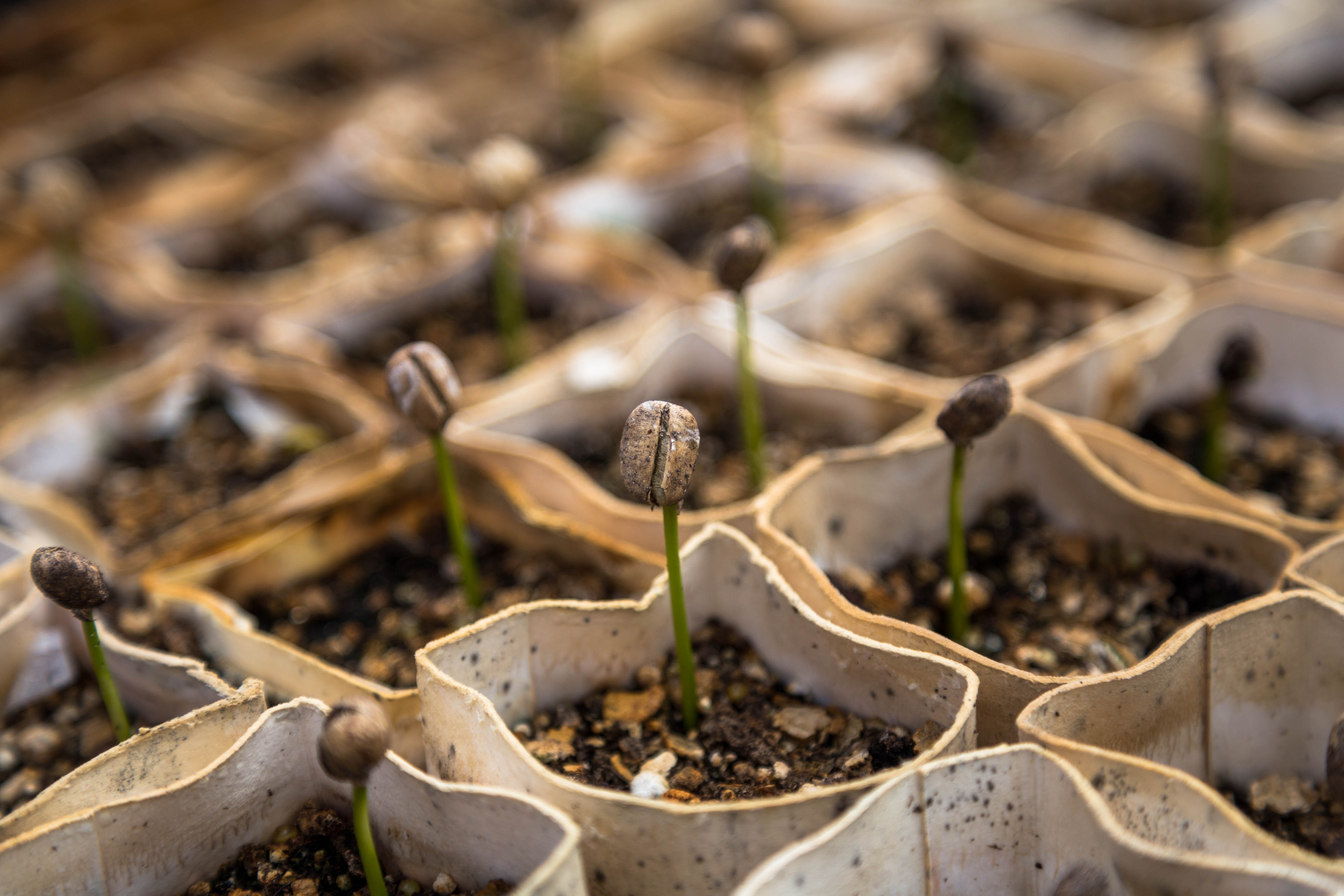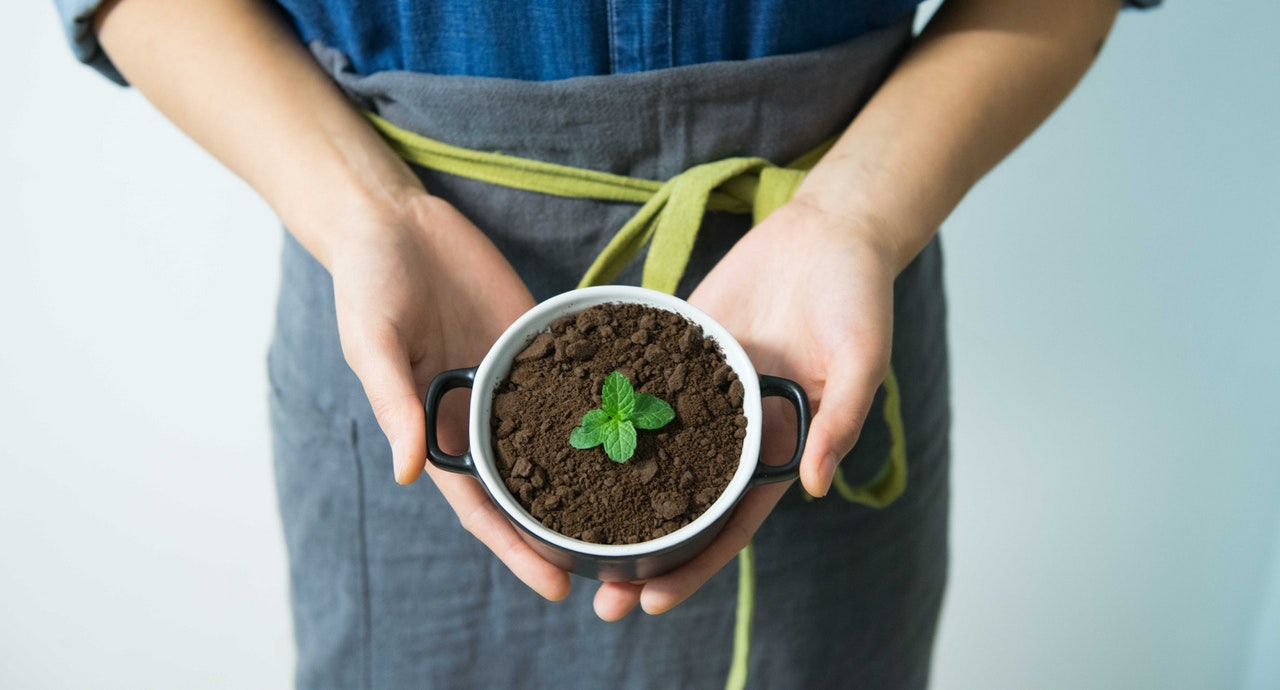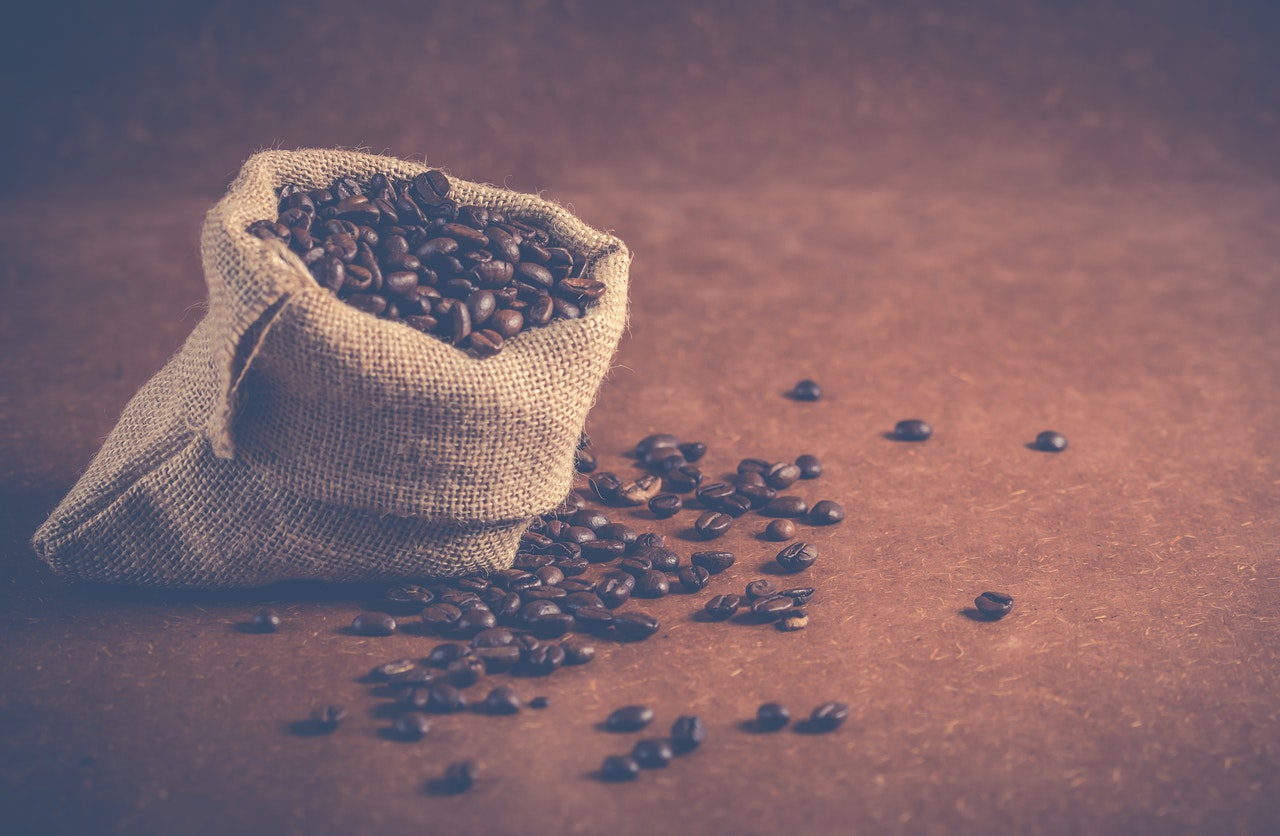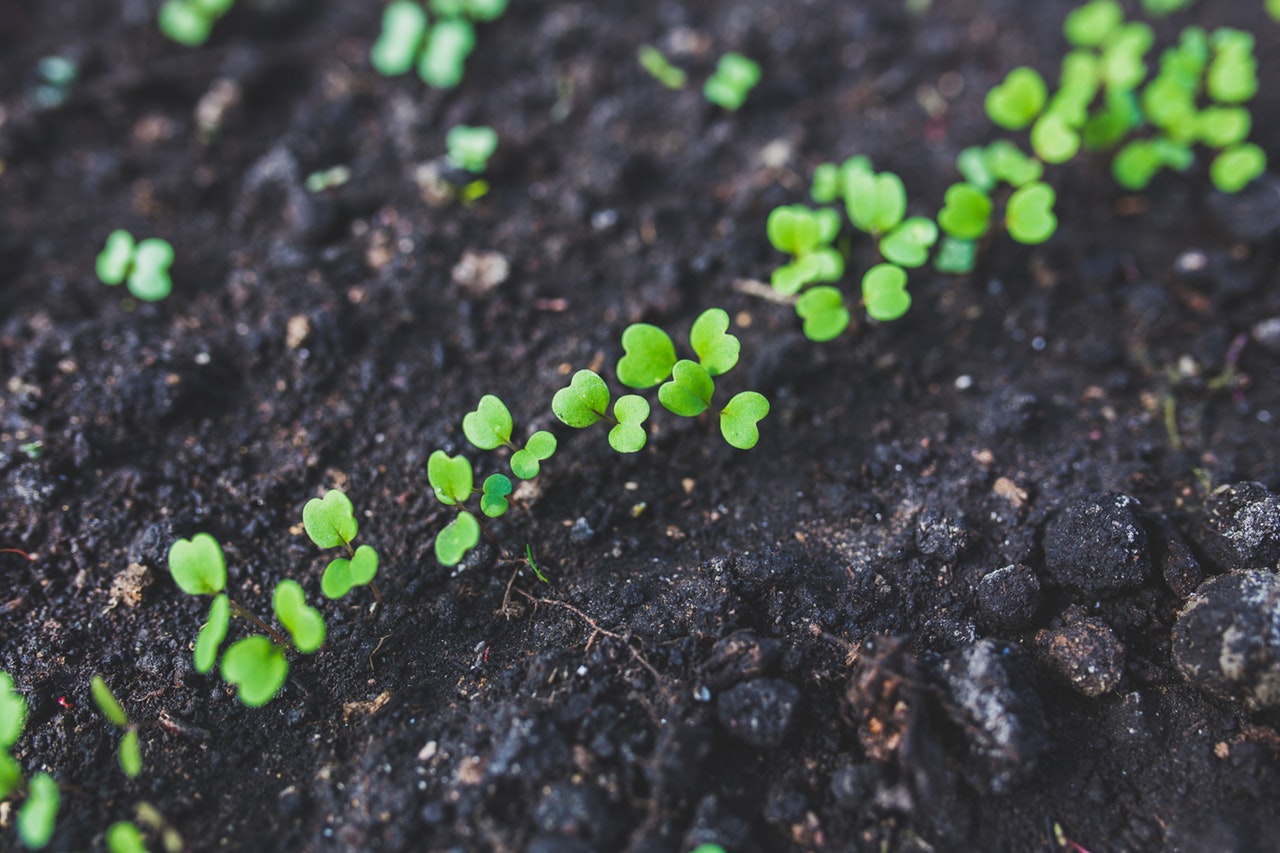Who knew that coffee grounds in the garden is an option? You may have seen your local cafe putting their used coffee grounds outside for patrons to take with them to use in their gardens. It usually is a waste product they have to pay to have hauled away.
This free resource is great for those who garden, and if you are someone who doesn't like to use chemicals, then coffee grounds in the garden could be a great solution for you. It's a cheap, eco-friendly method of adding nutrients to the soil.
What Do Coffee Grounds Do for Your Garden?
Image source: Unsplash
Coffee's organic matter contains copper, magnesium, phosphorous, potassium and nitrogen. It can be used to amend your soil and is great for the frugal gardener. It is even good for your lawn.
Lowers Soil pH
Coffee grounds in the garden should first be added to compost. However, mixing it directly into the soil can balance alkaline or boost acidity for plants that like a lower pH such as rhododendrons and hydrangeas.
Try brewing a weak cup of coffee with the used grounds from your morning cup to water plants. Add grounds to the soil in planters. Use the filters with grounds at the bottom of pots for houseplants.
Good Composting
This is a great idea to reduce landfill, and it adds nitrogen to the soil. You can also add your coffee filters to the compost pile. Used coffee is a green material which means it's high in nitrogen. Other materials that are green include vegetable peels and lawn clippings. You will need to balance this out with brown material such as cardboard, paper, leaves, or eggshells.
Works as Fertilizer
Many people scatter coffee directly on their garden beds. While it will not immediately add nitrogen to the soil, it can improve aeration, water retention, and drainage. It will also benefit the microorganisms that help plants to thrive. Coffee grounds in the garden lower the pH, which is good for plants that love acid.
The best way to make a fertilizer with coffee grounds in the garden is to mix equal parts of topsoil and grounds. In flower beds, you can sprinkle the grounds on top of the beds. Make sure not to make the layer any thicker than a half inch in depth to avoid water being blocked from reaching plants. Rake the soil after spreading to avoid this from occurring.
Using a wheelbarrow to create the mixture will allow you to wheel it around the yard and spread it where you desire. Observe your plants to see how they are responding and act accordingly. You can also mix in eggshells to create richer soil.
Works as Mulch
Because coffee contains caffeine, it could affect the growth of some plants. It is best to avoid areas where there are seedlings or young plants that may be susceptible.
The best practice is to mix the grounds in with the soil or rake it into the soil to avoid clumping to a depth of about 6 to 8 inches. Cover this with a material such as wood chips.
Is a Natural Pesticide
Coffee grounds in the garden have been said to repel both fire ants and slugs. It has also been said that it deters squirrels and racoons. There is nothing more frustrating than seeing your garden being devoured by pests.
Using a layer of coffee can help keep them out of your crops. Commercial products are full of chemicals, and while they are effective, they are unhealthy for you and your plants. A natural alternative is coffee grounds.
Repels Cats
Cats can find using your garden as a litter box to be very appealing. They can be destructive in your garden by digging up plants and it's never fun to find what they have deposited in your garden bed.
The addition of strongly scented things such as eucalyptus, pepper, or orange can deter them as well as coffee. Coffee is a natural way to keep the cats away, but it can also be toxic for them, so use it sparingly.
Suppresses Fungal Disease
Coffee grounds are anti-microbial. This means that as your compost heap or material in your soil is rotting, coffee grounds can stop fungal diseases such as Sclerotinia, Pythium, and Fusarium. Having coffee grounds in your garden can help to prevent these diseases from spreading.
Bacteria such as Staphylococcus and E. Coli are also affected by coffee grounds in the soil. In a test, it was shown that coffee grounds slowed down or stopped the growth of these bacteria.
Plants That Do Well with Coffee Grounds
Image source: Pexels
Some plants do better than others with coffee grounds in the soil. The addition of grounds improves the texture of the soil and the ability to drain water after heavy rainfall. As the grounds decompose they release phosphorus, potassium, and nitrogen to plants that require this source of vitamins. Plants that thrive in nitrogen-rich soil include:
Tomatoes
Tomatoes love nitrogen-rich planting beds. Nitrogen helps them grow strong roots and boost the chlorophyll content which is important for photosynthesis. This eco-friendly fertilizer attracts earthworms which also help the plants thrive. Since the grounds repel slugs, they protect the plants from attacking slugs who are attracted to tomatoes. The best application is to mix grounds with compost or add to topsoil.
Lawn Fertilizer
Lawns love coffee grounds, they make them more lush and green. The best way to apply grounds is to spread it when you water. Mix five gallons of water to a half pound of coffee grounds. This avoids clumps and you can ensure it is spread evenly when you sprinkle the lawn with the mixture. It can also be spread by hand and then raked so that it falls between the blades and into the soil where the nutrients are needed.
If you are using compost, spread it with grass seed to cover any bald spots in the lawn. The coffee keeps the mixture moist and will assist the seeds in growing. It can take about 3 months for compost to break down with coffee grounds.
Roses
Roses love coffee, the high nitrogen content loosens soil texture allowing the roses to spread their roots. It repels bugs and helps roses look their best. Add the grounds to compost and sprinkle at the base of the bush. Or you could mix grounds with water and pour around the base 1 to 2 times a month.
Hydrangea
Improve the color of your flowers with coffee grounds. You will see more vivid and brighter colors on your plant.
How to Use Coffee Grounds in the Garden
Image source: Pexels
Here are a few suggestions about how you can use coffee grounds in your garden:
For Aeration
Compacted soil will not allow your plants to thrive. Coffee grounds can amend your soil and create a growing environment for your plants that will allow them to get the water, nutrients, and the oxygen they need. This allows your plants to develop a healthy root system which will strengthen them.
To Retain Water
In areas that are arid and dry, water retention can be a problem. Even plants that are drought resistant will end up withering and dying. Adding coffee grounds to your soil will allow it to retain water and will also allow the plants to thrive with less water.
For Drainage
Poor drainage can create pooling and stagnation leaving your plants in danger of becoming diseased. Soil that has good drainage will allow the roots of your plants to get the water they need and drain away the water they don't. Coffee grounds break up the soil allowing for this to occur.
To Attract Earthworms
Worms love coffee. And they are great for the garden. Earthworms can produce high-quality soil from organic waste. They are the best way to break down compost and an efficient and clean way to break down garden clippings and scraps.
They tunnel and allow oxygen and water to flow to the roots of your plants. When they eat organic matter in the soil, their castings, or droppings, produce nutrients that are good for your plants.
Coffee grounds happen to be organic matter and are earthworms attracted to them, which in turn, provides your garden with drainage and vital nutrients. Worms seem to enjoy the taste of coffee as much as we do.
In order to aid in digestion, worms need foods that are gritty such as coffee grounds. This helps them to get through organic waste. One way to keep worms in your compost pile is to line it with coffee grounds on a regular basis.
Conclusion
Image source: Pexels
It's always fun to find new uses for things we normally throw out which makes for less landfill. Finding uses for coffee grounds in the garden is a great idea, and it can save money you may otherwise spend on garden amendments.
A side benefit is that it may also deter pests such as raccoons, squirrels, slugs, and cats. Cafes in the USA have an overabundance of used coffee grounds, speak to your local shop and pick some up for your garden.




Leave a Reply